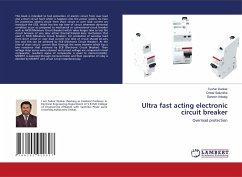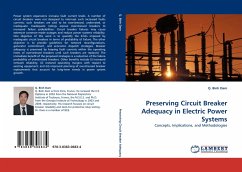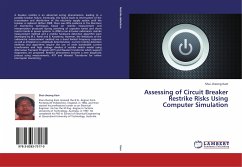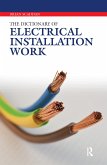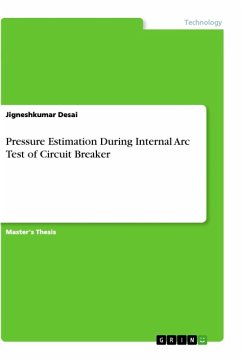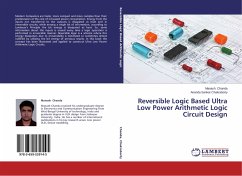This book is intended to fast protection of electric circuit from over load and a short circuit fault which is happens into the power system. So here for protection electric circuit from short circuit or over load current we introduce the ECB. which has less trip time of circuit whenever abnormal condition occur as compared to mechanical or convectional circuit breaker such as MCB (Miniature Circuit Breaker) which takes longer time to trip the circuit because of very slow action thermal bimetal lever mechanism that used in MCB (Miniature Circuit breaker). For protection of sensitive load from short circuit or over load current trip time of circuit should be very low and this can be achieved by ECB (Electronic Circuit Breaker). At the time of short circuit, current flow through the series element which has a low resistance that is sensed by ECB (Electronic Circuit Breaker). Then voltage drop across series element and preset voltage are compared in level comparator, resultant signal of comparator is given to microcontroller, MOSFET is operated through microcontroller and then operation of relay is decided by MOSFET and circuit is trip instantaneously.
Bitte wählen Sie Ihr Anliegen aus.
Rechnungen
Retourenschein anfordern
Bestellstatus
Storno

